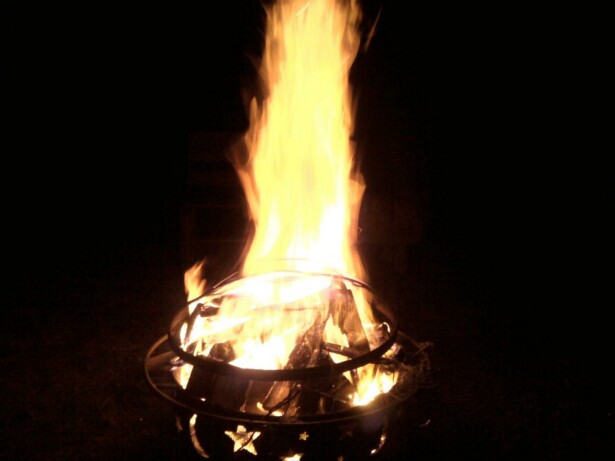|
The Birch Tree, the first tree to grow on bare soil, will begin its rule
on December 24th through January 21st, as the rebirth of the forest begins. The Birch moon is feminine, and rules inceptions
and beginnings.
Originally, the tree calendar began at Samhain to coincide with with
the beginning of the Celtic New Year, but in modern Celtic Wicca, the tree calendar begins with the Birch moon, the moon closest
to Yule. Although it is disputed whether the tree calendar was used at all by the ancient Celts, Yule is the only fixed date
in the tree calendar known to have been observed by them. The tree calendar is based on the symbolism used in ancient Welsh
and Irish poetry containing calendrical themes as interpreted by the scholar Robert Graves. -- Hob's Green
Mary Magdalene
Was Mary Magdalene a penitent prostitute, devoted disciple, or the
love interest of Jesus? While popular culture has portrayed her as all three, Mary Magdalene's true identity is the
subject of much speculation and discussion. Mary Alice Williams talks with scholars about Mary Magdalene's role in the Christian
Church, including evidence that she was both an apostle and a leader in the Church after the Resurrection. Karen King, a professor
of ecclesiastical history at Harvard Divinity School who has written a book about Mary Magdalene based on the ancient Gnostic
text, "The Gospel of Mary," observes, "Mary Magdalene is important, I think, to women of all faiths because it tells women
that they, too, have a history -- and a history that places them at the center of their own traditions." -- Religion and Ethics Newsweekly
On Finding Approval
From the time we are infants, we learn to seek the approval of those we
look up to. It's no different in spiritual matters: whether we are Christian or Pagan, we still seek approval of what
we believe, of the way we practice our faith, even of the way we speak, or dress, or of what we possess. Because of lack
of acceptance, Pagans face special problems -- read some thoughts on this in the article, On Finding Approval.
"The Lord and Lady have many names. The
Lady is known as Diana, Aradia, Frau Venus, and Holda. The Lord is known as Herne, Cernunnos, and Pan. These names are,
however, only the beginning. The realities of the divine are too complex to be contained in a single image or a single identity."
-- Tony & Aileen Grist, The Illustrated Guide to Wicca
Concepts: Christianity
vs. Wicca
If you were raised a Christian,
you may feel torn when you wish to become Pagan because you want to keep some valued Christian traditions -- don't worry!
The Roman Catholic Church was very clever about adapting ancient Pagan festivals and traditions to Christianity and you may
be surprised to learn that you've actually been celebrating Pagan-style for a long time.
Neo-paganism is all about
embracing the long history of human interactions with their gods, and adapting observances and practices from ancient times
to our modern lives. Paganism embraces a myriad of spiritual traditions, and progress has allowed us to recognize that there
is no one right path.
However, each tradition
has some important tenets which make them exclusive from others. Though Pagans, in general, are tolerant of others' religious
beliefs; Pagans, as individuals or united groups, may not be any more tolerant than a Christian or any other fundamentalist.
Many Asatruar,
for example, would be very offended by the idea of someone calling himself or herself Asatruar if they aren't 100% faithful
to Asatru traditions. Similarly, many Christians are completely antagonistic towards anyone who believes in any other God than theirs. -- Editor
The Divine Spirit
: The Divine Spirit is separate
from the world, and separate from the spirit, although it may fill its believers.
Neo-Pagan: The Divine Spirit is a part of the world and the world is a part of the spirit. There
is no firm definition between the spirit world and the material world.
Male vs Female
- Christian: The Divine Spirit is male, though some traditions allow that women may be Holy or Sanctified.
Females are weaker and subjugated to males, and become holy or sanctified only through the male.
- Neo-Pagan: The Divine Spirit may be male, female, and both at once. The feminine aspects of God and
humanity are strong and equal to the male.
Sin
- Christian: You were born a sinner and must accept that Jesus Christ died for your sins in order to
be forgiven and be made clean.
- Neo-Pagan: There is no original sin, but you must not do wrong to others or you will have to make
retribution for it in this life or the next; some believe that what you do comes back to you three times greater.
Death
- Christian: Some traditions say that when a person dies they remain in limbo, or in purgatory, until
the Last Judgment, while others believe that your fate is decided as soon as you die. If you are "saved" by your acceptance
of Jesus Christ, you will be spiritually resurrected into Heaven where your soul will stay eternally with God, the angels,
and all the rest of the saved. If you aren't saved, you'll be sent to Hell, where you'll live in eternal torment with Satan,
his demons, and all the rest of the damned.
- Neo-Pagan: After death, your soul may linger for a while on earth to watch over your loved ones;
you may go beyond the veil to your tradition's version of Heaven (the Summerland, Valhalla, etc.); or you may return, reincarnated,
into a new fleshly body to continue perfecting your understanding of the Divine.
| The Fellowship of Earth, Moon, and Sky |

|
| Welcome and Mission Statement |
| The Universal Life Church |
|
|
| A Church for ALL Faiths, Beliefs, and Religions |
| Ordained Minister |

|
| Lay Counsellor |
"But one should
pray in one's heart during a sacred ceremony; this is the purpose of the ceremony, to purify the participants both inside
and outside." ~ Thomas
Yellowtail, CROW, -- Elder's Meditation of the Day
|
